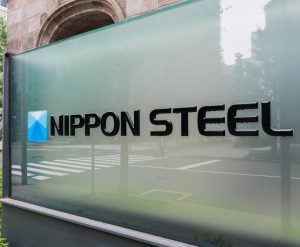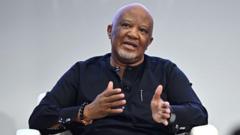**President Joe Biden appears ready to reject Nippon Steel's attempt to acquire US Steel, a decision with deep implications for both the economy and diplomatic relations with Japan, reinforcing the dynamics of protectionism in trade policy.**
**Biden's Anticipated Rejection of Nippon Steel's Acquisition of US Steel Raises National Security Concerns**

**Biden's Anticipated Rejection of Nippon Steel's Acquisition of US Steel Raises National Security Concerns**
**The potential blocking of a major merger is set to challenge US-Japan relations while highlighting the Biden administration's protectionist strategies amid national security debates.**
President Joe Biden is on the verge of making a significant decision regarding the $14.9 billion acquisition of US Steel by Nippon Steel, which could lead to the merger’s collapse. This anticipated move follows an extended evaluation by the Committee on Foreign Investment in the United States (CFIUS), which ultimately could not reach a consensus, prompting the referral to Biden in December.
Insider reports from The Washington Post indicate that Biden could announce his decision as early as Friday, despite cautions from senior advisers regarding potential diplomatic repercussions with Japan, a vital ally for the US. This situation arises at a time when US collaboration with Japan is essential for counterbalancing China's expanding influence in the Asia-Pacific area.
Should the deal be blocked, it would illustrate the administration’s trend towards protectionist measures, often framed within the argument of safeguarding national security. Critics emphasize the necessity of protecting American industries, but they warn that excluding foreign investment from trusted partners like Japan could risk undermining essential global alliances. The steel sector, being crucial to both defense and infrastructure, has emerged as a central focus for heightened scrutiny of foreign purchases.
Market responses to the news have been immediate, with US Steel shares declining by 7.8% in pre-market trading. Conversely, Japan’s stock market remained stable due to a public holiday. However, the implications extend further than financial metrics. As one of the largest steel manufacturers globally, Nippon Steel plays a pivotal role in international supply chains, and blocking this deal could convey a message to other allies about an increasingly insular US stance on foreign investments.
Such a decision has the potential to strain US-Japan relations, particularly at a juncture where diplomatic cohesion is vital. Tokyo has historically served as one of Washington's closest allies, and an economic nationalist strategy perceived as sidelining this partnership might complicate efforts to tackle shared regional challenges.
As the announcement nears, a crucial debate is emerging: Is this a necessary precaution for national security, or a counterproductive decision that could alienate key allies? Critics contend that the approach taken by Biden’s administration may ultimately jeopardize the strategic interests it seeks to defend.




















